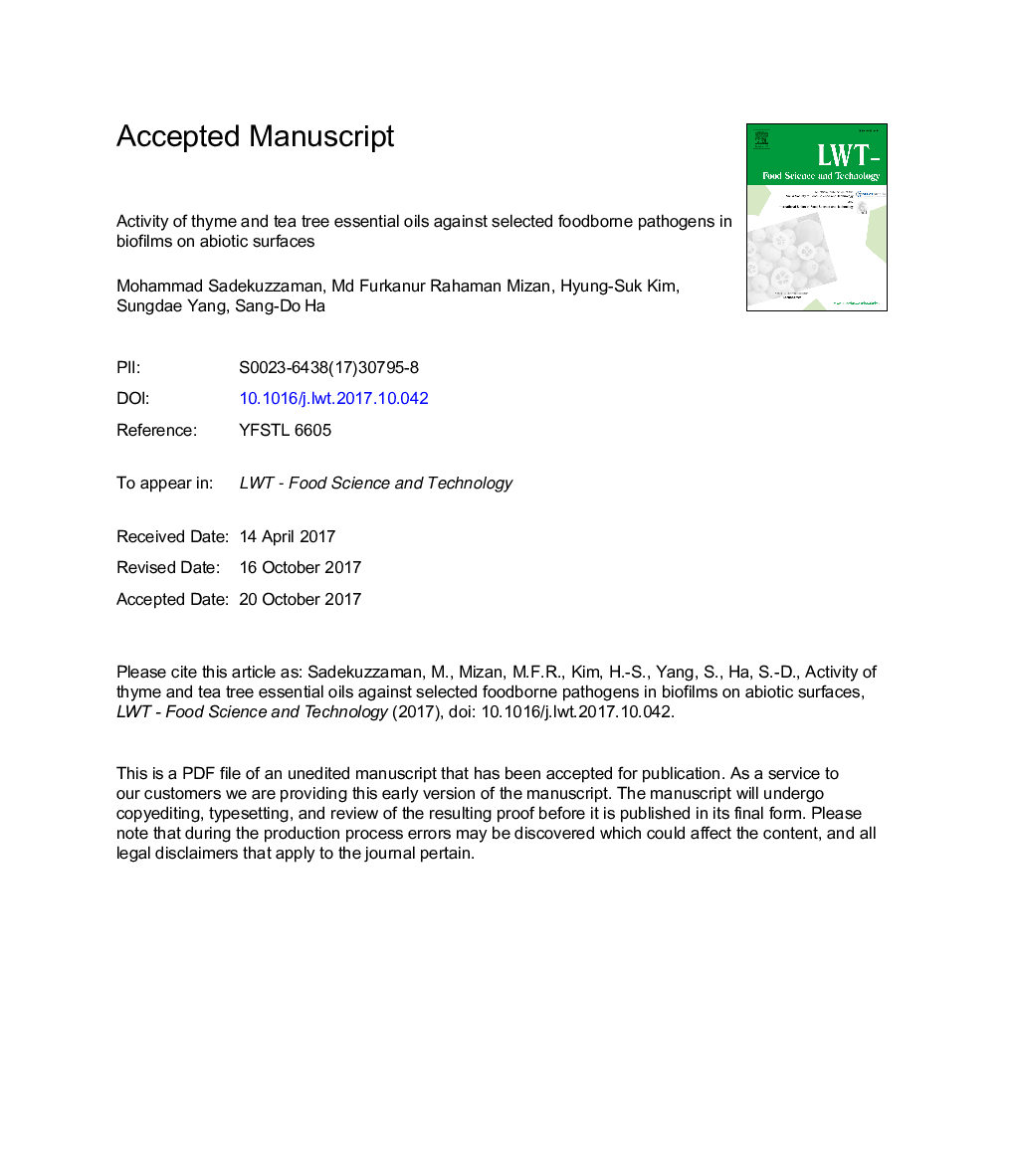| Article ID | Journal | Published Year | Pages | File Type |
|---|---|---|---|---|
| 8891870 | LWT - Food Science and Technology | 2018 | 30 Pages |
Abstract
Owing to their preservative and antimicrobial effects, essential oils (EOs) are promising natural ingredients for the food industry. The main objective of this study was to investigate the activity of thyme and tea tree oils against selected foodborne pathogens in biofilm mode. The major compounds of these EOs were analyzed by gas chromatography-mass spectrometry (GC-MS) and their antimicrobial activity was determined by a standard broth dilution assay. Biofilms were formed by Escherichia coli O157:H7, Listeria monocytogenes, and Salmonella spp. on abiotic surfaces and were treated with EOs at the minimum inhibitory concentration (MIC) and 0.1% (v/v) for 2 h. Our results demonstrate that EO treatment reduced biofilm cells up to 3.5 log CFU/cm2, 2.1 log CFU/cm2, and 2.5 log CFU/peg on stainless steel (SS), rubber, and minimum biofilm eradication concentration (MBECâ¢) surfaces, respectively. Structural changes of the biofilm after exposure to EOs was confirmed by field-emission scanning electron microscopy and viability of biofilm cells was observed using a confocal laser scanning microscope. Overall, these results suggest that EOs could be used to reduce foodborne pathogens in biofilms.
Related Topics
Life Sciences
Agricultural and Biological Sciences
Food Science
Authors
Mohammad Sadekuzzaman, Md Furkanur Rahaman Mizan, Hyung-Suk Kim, Sungdae Yang, Sang-Do Ha,
